The term “slacks” might sound old-fashioned, but these classic trousers remain a cornerstone of women’s professional and casual wardrobes.
Understanding what slacks are and how they differ from other trouser styles helps you make better shopping decisions and communicate more clearly about the pants you’re looking for.
Slacks represent a specific category of women’s trousers between casual jeans and formal dress pants. They’re designed for versatility, comfort, and polished appearance across multiple occasions and settings.
The confusion around this term often stems from generational differences and regional variations in fashion terminology, but understanding slacks’ defining characteristics helps clarify their place in modern women’s wardrobes.
What are slacks for ladies: Defining Slacks
Slacks are tailored trousers designed for women that typically feature a straight or slightly tapered leg, mid-rise waistline, and construction suitable for both professional and casual wear.
They’re more structured than leggings or joggers but less formal than dress pants or suit trousers.

The term “slacks” originated in the 1940s when women began wearing trousers more regularly. The name comes from their “slack” or relaxed fit compared to the fitted skirts and dresses that dominated women’s fashion at the time.
Modern slacks maintain this heritage of comfort and practicality while incorporating contemporary cuts, fabrics, and styling details that make them relevant for today’s lifestyles.
Unlike jeans, slacks typically use dress trouser construction techniques including proper waistbands, belt loops, and pressed creases.
Unlike formal dress pants, they’re designed for regular wear across multiple contexts rather than specifically professional settings.
Key Characteristics of Women’s Slacks
Construction and Fit
Slacks feature structured waistbands that sit comfortably at or slightly below the natural waist. They typically include belt loops, though some styles may have built-in belts or tie closures.
The leg cut ranges from straight to slightly tapered, avoiding both the wide drama of palazzo pants and the skin-tight fit of leggings. This moderate silhouette works across different body types and occasions.
Fabric Choices
Traditional slacks use fabrics like cotton twill, polyester blends, or wool gabardine that hold their shape while remaining comfortable for extended wear. Modern versions might include stretch materials for improved fit and comfort.
The fabric weight falls between lightweight casual pants and heavyweight suit trousers, making slacks suitable for multiple seasons with appropriate layering.
Closure and Details
Most slacks feature front zip closures with button or hook fasteners, similar to dress pants but often with less formal hardware. Some casual versions might use pull-on waistbands with elastic elements for comfort.
Pressed creases down the front of each leg are traditional for slacks, though casual versions might skip this detail for a more relaxed appearance.
Different Types of Women’s Slacks
Straight-Leg Slacks
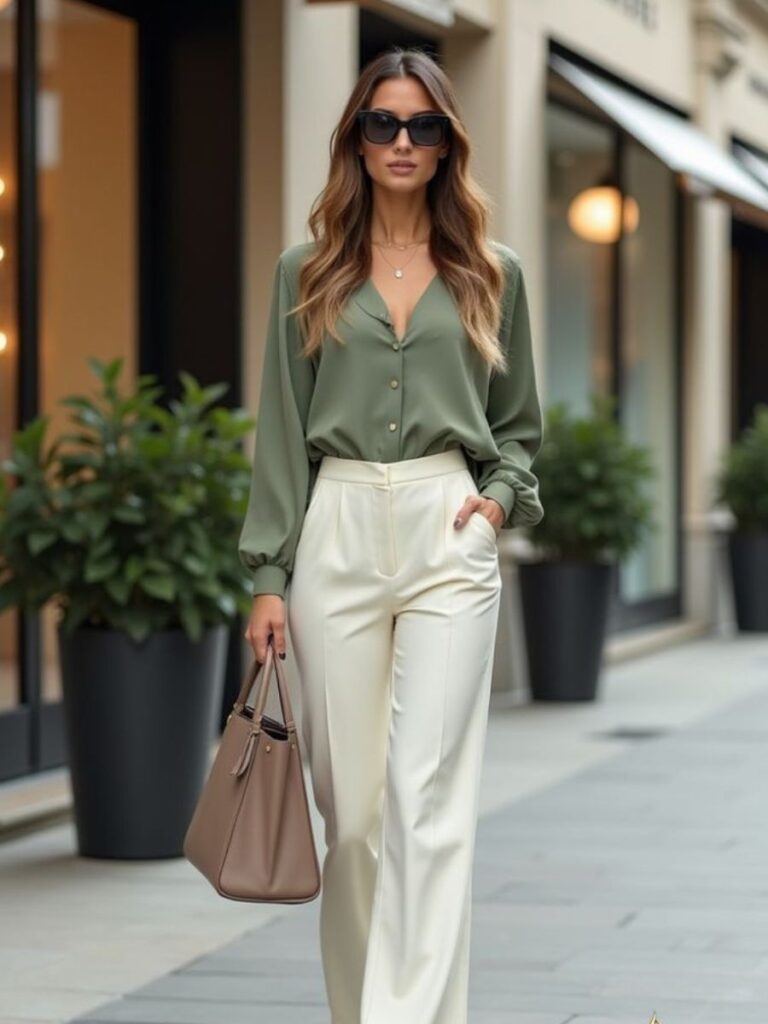
The most traditional style features a straight cut from hip to ankle, creating clean lines that work with various top styles and shoe choices. These versatile options work across professional and casual contexts.
Tapered Slacks
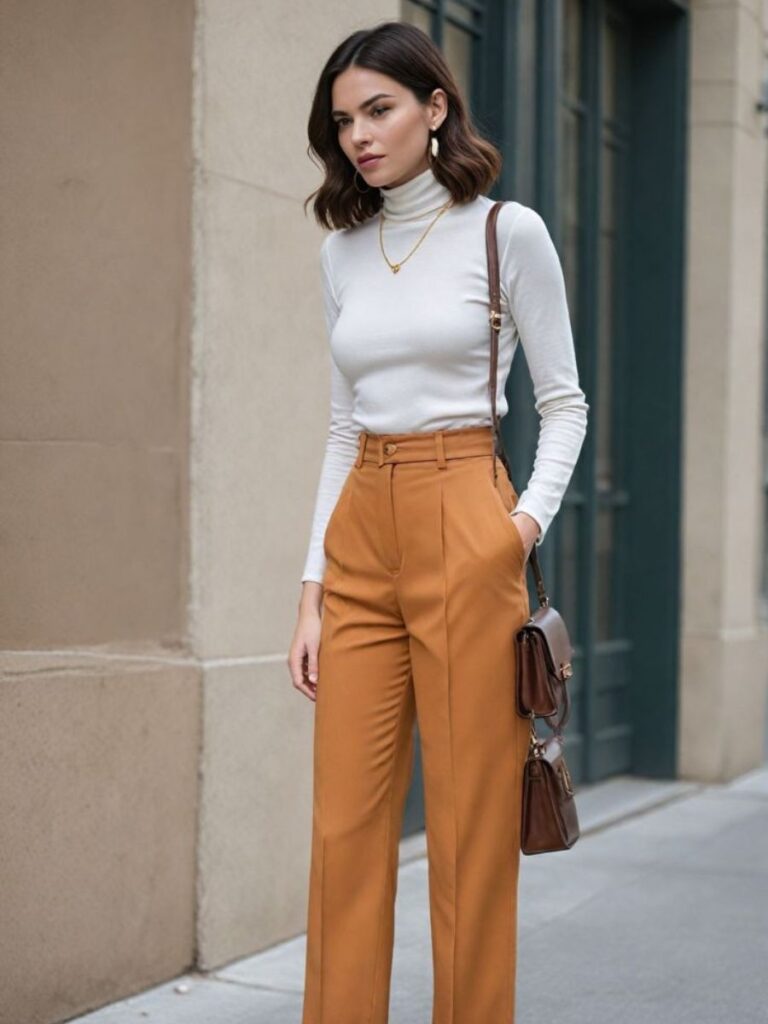
Modern interpretations often feature subtle tapering that creates a more fitted appearance through the leg while maintaining the comfort and versatility that define slacks.
High-Waisted Slacks
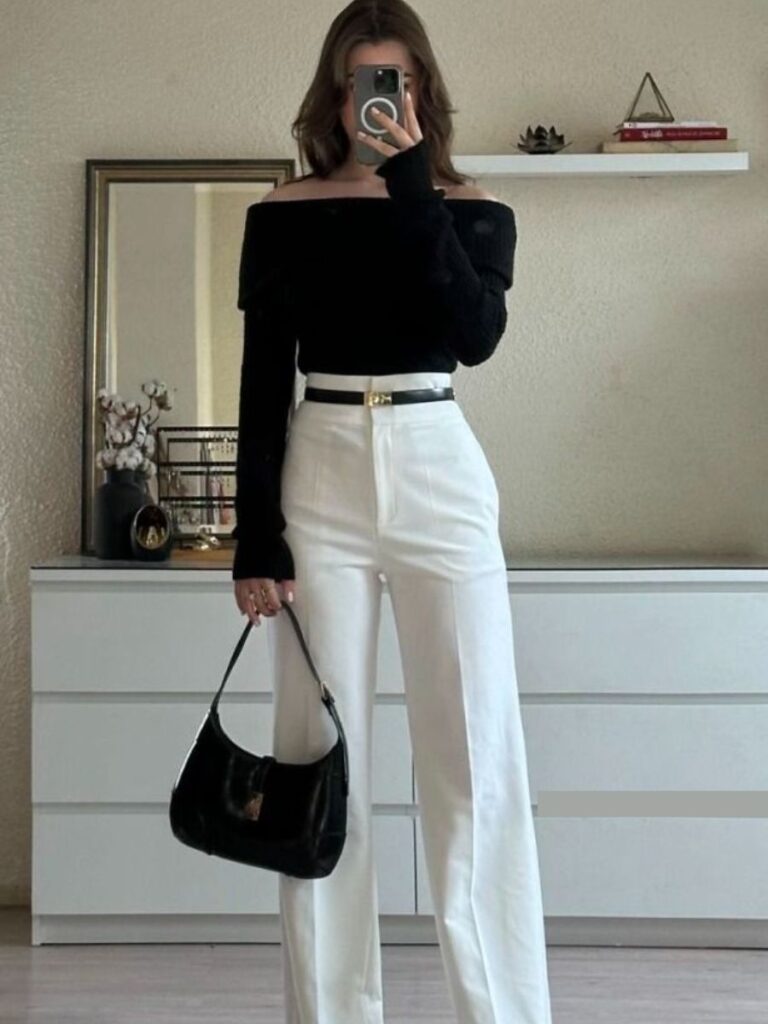
Contemporary updates include higher waistlines that create flattering silhouettes and work well with tucked-in tops or cropped jackets.
Cropped or Ankle Slacks
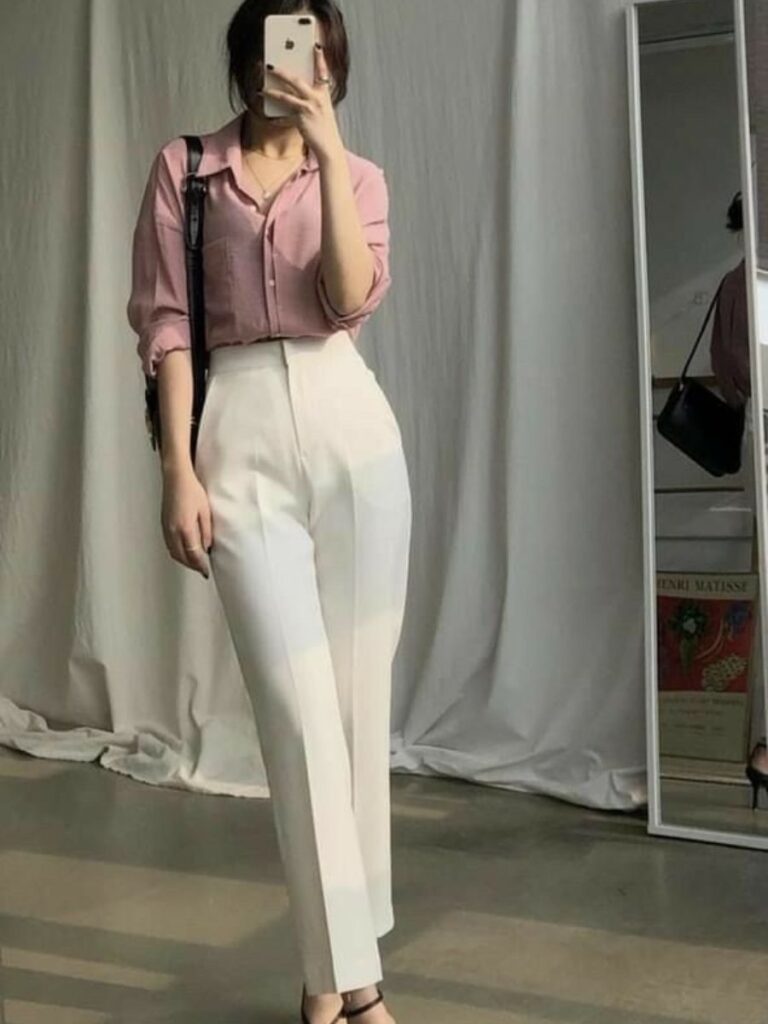
Shorter lengths that hit at or just above the ankle offer modern proportions and work particularly well with flats, loafers, or low heels.
Pull-On Slacks
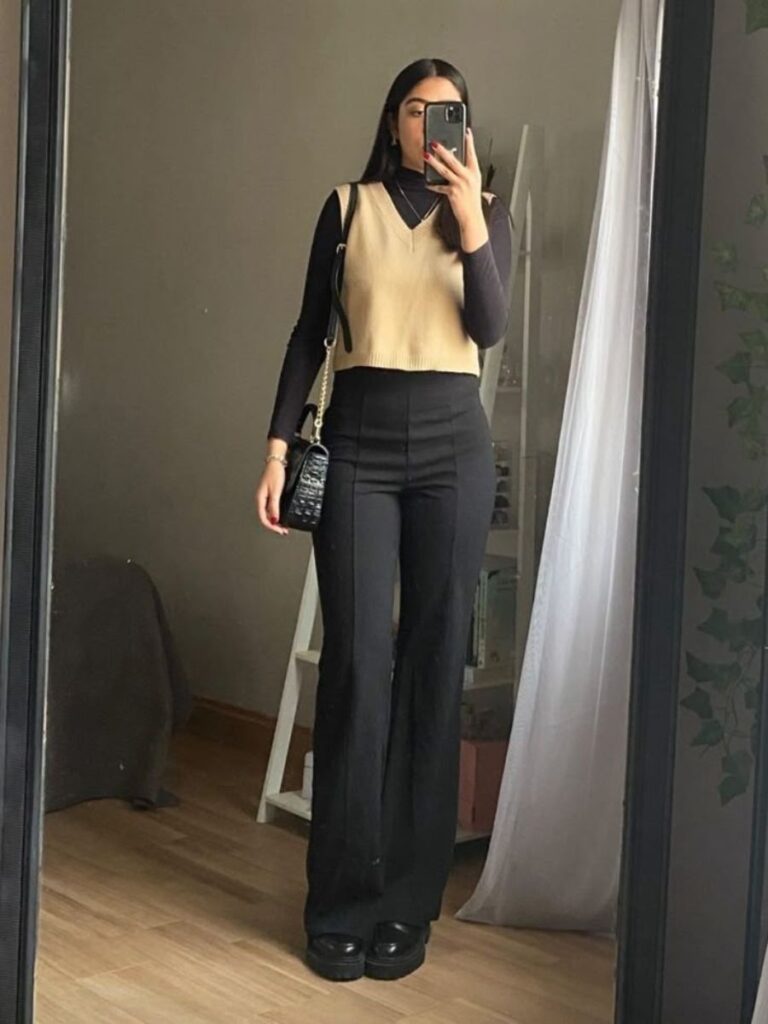
Versions with elastic waistbands provide maximum comfort while maintaining the polished appearance that makes slacks appealing for various occasions.
How Slacks Differ from Other Trousers
Slacks vs. Dress Pants
Dress pants are more formal with finer fabrics, more precise tailoring, and construction details suited for professional or formal occasions. Slacks are more versatile and casual-friendly.
Slacks vs. Casual Pants
Casual pants encompass a broader category including everything from yoga pants to cargo pants. Slacks specifically refer to more structured, tailored options suitable for public wear.
Slacks vs. Trousers
“Trousers” is a broader term that includes all leg-covering garments from jeans to formal pants. Slacks represent a specific subcategory within trousers.
Slacks vs. Chinos
Chinos typically refer to a specific cotton twill fabric and construction, while slacks can be made from various materials and represent a broader category of casual-to-dressy pants.
Styling Slacks for Different Occasions
Professional Settings
Slacks work well for business casual environments when paired with blouses, cardigans, or blazers. They provide professional polish without the formality of suit pants.
Choose darker colors and classic cuts for more conservative workplaces, while creative environments might welcome lighter colors or modern styling details.
Casual Wear
For weekend or casual occasions, slacks pair beautifully with casual tops, sweaters, or even fitted t-shirts for polished casual looks that feel more put-together than jeans.
Travel and Comfort
Slacks offer the comfort needed for travel while maintaining the polished appearance suitable for various destinations and activities.
Fabric and Color Options
Traditional Colors
Navy, black, gray, and khaki remain the most versatile colors for slacks, working across seasons and with multiple top choices.
Seasonal Variations
Lighter colors like cream, soft gray, or pastels work well for spring and summer, while deeper tones suit fall and winter styling.
Pattern Possibilities
Subtle patterns like thin stripes, small checks, or textured weaves can add visual interest while maintaining the versatility that makes slacks appealing.
Fit Considerations for Slacks
Waist Placement
Choose waist heights that flatter your proportions and work with your preferred styling approaches. Higher waists work well with tucked-in tops, while mid-rise options offer versatility.
Length Choices
Full-length slacks should graze the top of your shoes with a slight break, while cropped versions should hit at a flattering point on your ankle.
Leg Width
The leg opening should be proportional to your body and current style preferences while maintaining the moderate width that defines slacks.
Shopping for Quality Slacks
Construction Details
Look for properly finished seams, quality hardware, and reinforced stress points that indicate good construction. Well-made slacks maintain their appearance through regular wear and washing.
Fabric Quality
Choose fabrics that feel substantial enough to maintain their shape while remaining comfortable for extended wear. Avoid fabrics that wrinkle excessively or feel too thin.
Fit Testing
Ensure slacks fit properly through the waist, hip, and thigh while allowing comfortable movement. The waistband should sit flat without gapping or binding.
Care and Maintenance
Most slacks benefit from professional pressing to maintain their crisp appearance, though many modern versions are designed for easy home care.
Follow fabric care instructions to maintain color and shape. Many contemporary slacks are machine washable, though traditional pressing helps maintain their polished appearance.
Proper storage on hangers helps maintain the trouser’s shape and pressed creases between wears.
Conclusion
Was this helpful? Let me know in the comments.
See you in the next one,
Yours stylishly!
